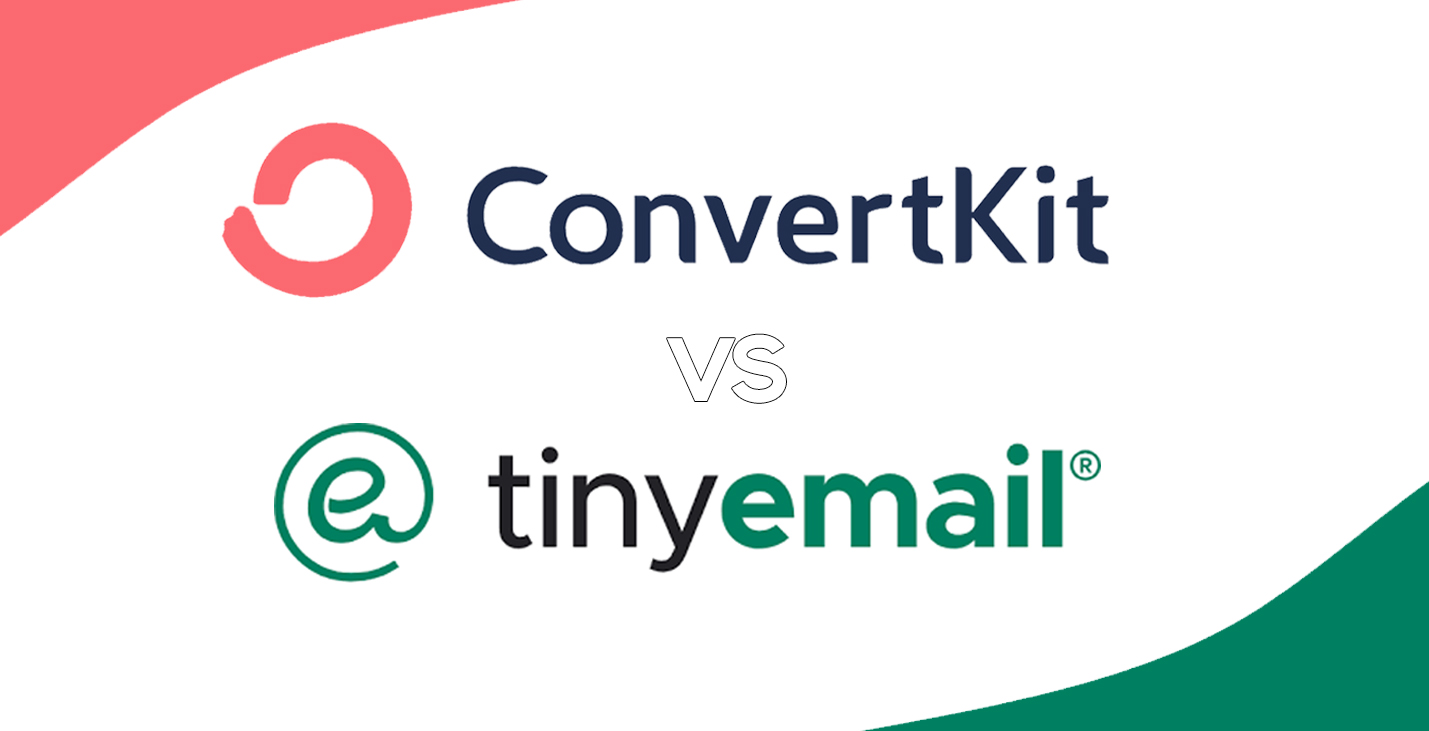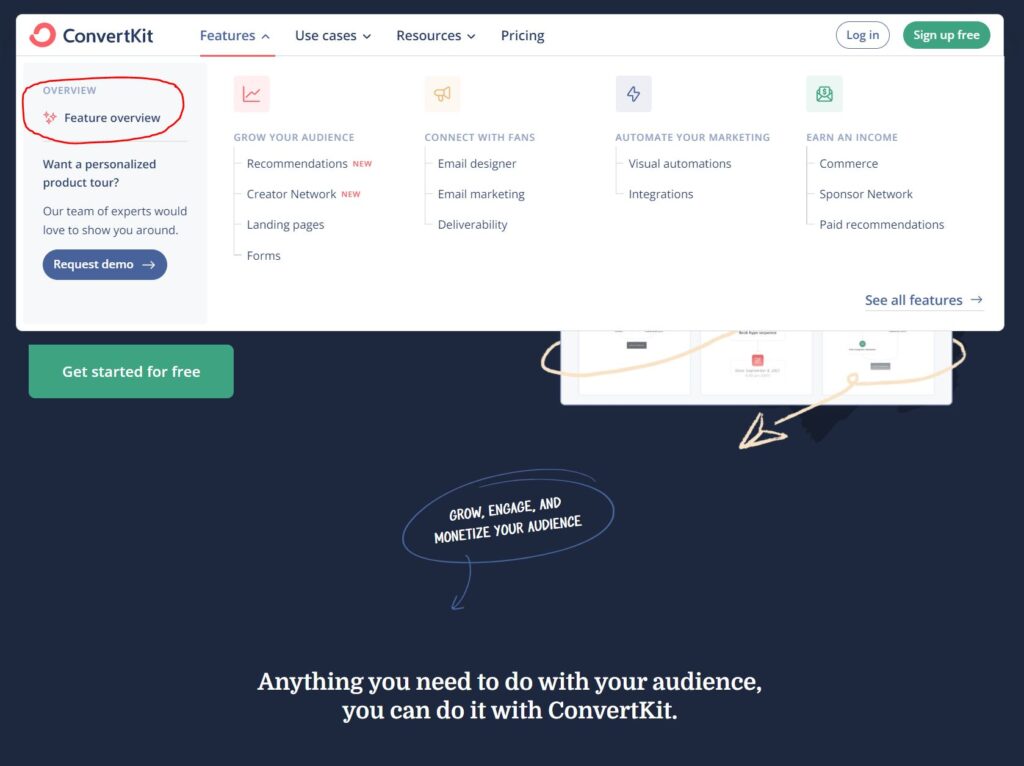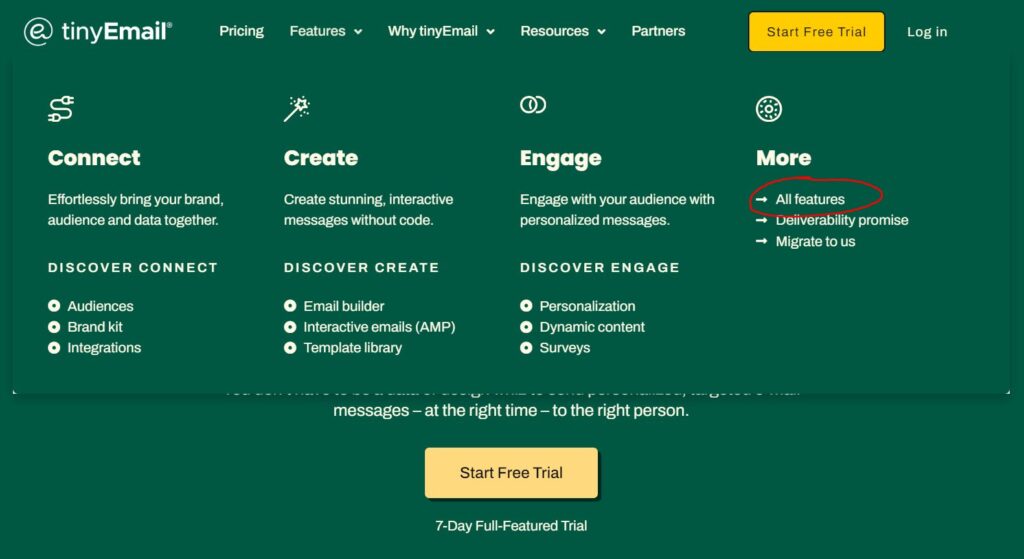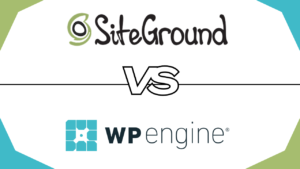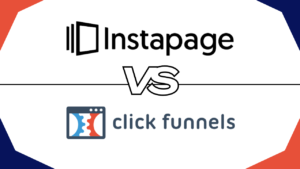Convertkit and Tinyemail are Two prominent platforms in the email marketing space. We’ll explore their features, ease of use, pricing, and more, to help you determine which service best fits your email marketing needs. Whether you’re a seasoned marketer or just starting, this comparison aims to provide you with a clear perspective on what Convertkit and Tinyemail have to offer.
Table of Contents
Introduction: ‘Convertkit vs Tinyemail’
In today’s digital marketing world, choosing the right email marketing tool can be a pivotal decision for your business or personal brand. In this comprehensive guide, we’ll delve into a detailed comparison of two popular email marketing solutions: Convertkit and Tinyemail. This Convertkit vs Tinyemail analysis aims to provide you with all the information you need to make an informed decision about which platform suits your marketing needs best!
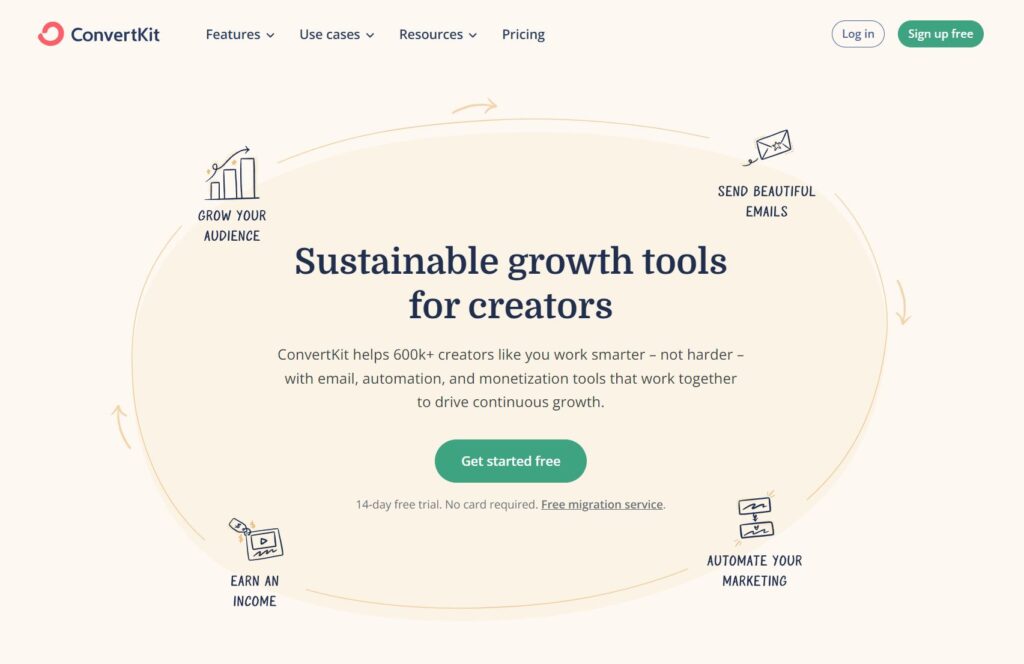
Convertkit, a well-established player in the email marketing arena, is renowned for its user-friendly interface and powerful automation features. Designed primarily for bloggers, content creators, and small to medium-sized businesses, Convertkit offers a range of tools that cater to intricate email marketing strategies while maintaining simplicity and ease of use.
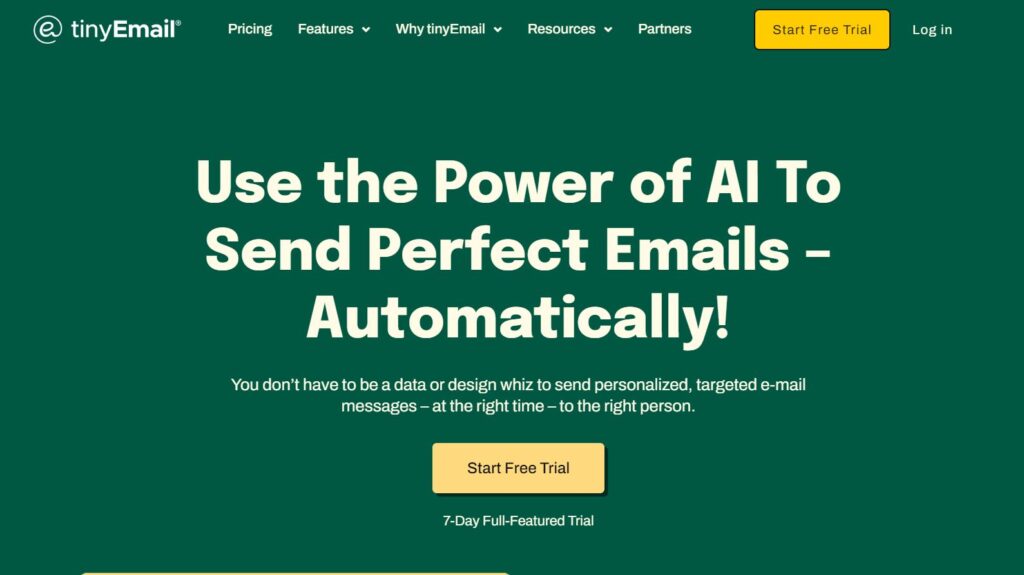
On the other side of our Convertkit vs Tinyemail, comparison is Tinyemail, a newer but rapidly growing email marketing service. Known for its minimalist approach and straightforward functionality, Tinyemail appeals to those seeking a no-frills, efficient email marketing solution. It’s especially favored by small businesses and startups looking for cost-effective and easy-to-manage email campaigns.
How User-Friendly Are Convertkit and Tinyemail?
Ease of use is a crucial factor, especially for those who are new to email marketing or have limited technical skills. Let’s break down how each platform performs
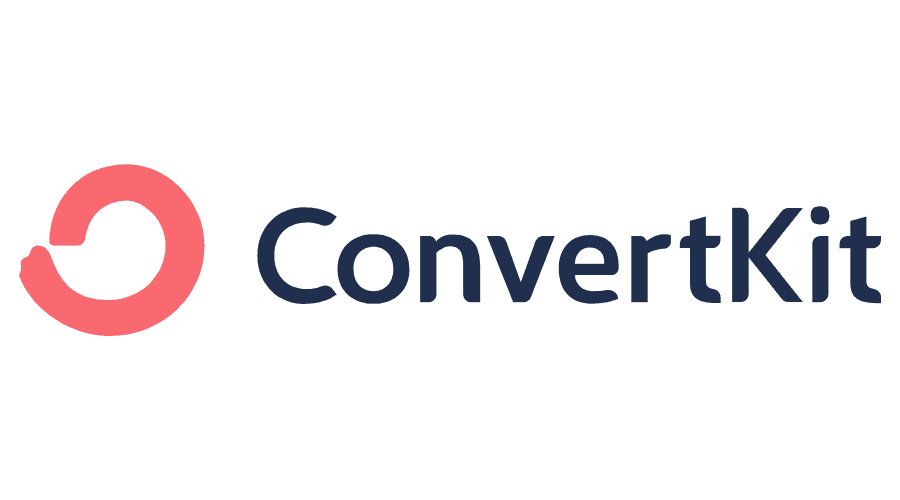
Convertkit: shines with its intuitive user interface. It’s designed with simplicity in mind, making it easy for beginners to navigate. From setting up an account to creating your first email campaign, the process is straightforward. Convertkit’s dashboard offers a clear overview of your campaigns, subscriber lists, and analytics, all accessible with minimal clicks. Additionally, its drag-and-drop email builder allows users to create professional-looking emails without any prior design experience.

Tinyemail: takes a minimalist approach. Its interface is clean and uncluttered, which is great for users who prefer a no-nonsense, focused email marketing experience. However, this simplicity sometimes comes at the cost of fewer on-screen tips and guides, which might pose a slight challenge for absolute beginners. But once you get the hang of it, Tinyemail’s straightforward approach can significantly streamline the email creation and sending process.
Pricing and Plans: ‘What Will It Cost You?’
While Convertkit offers a tiered pricing model that scales with your subscriber count, catering to more advanced needs, Tinyemail provides a more straightforward and affordable pricing structure, making it an attractive option for small businesses and email marketing beginners.
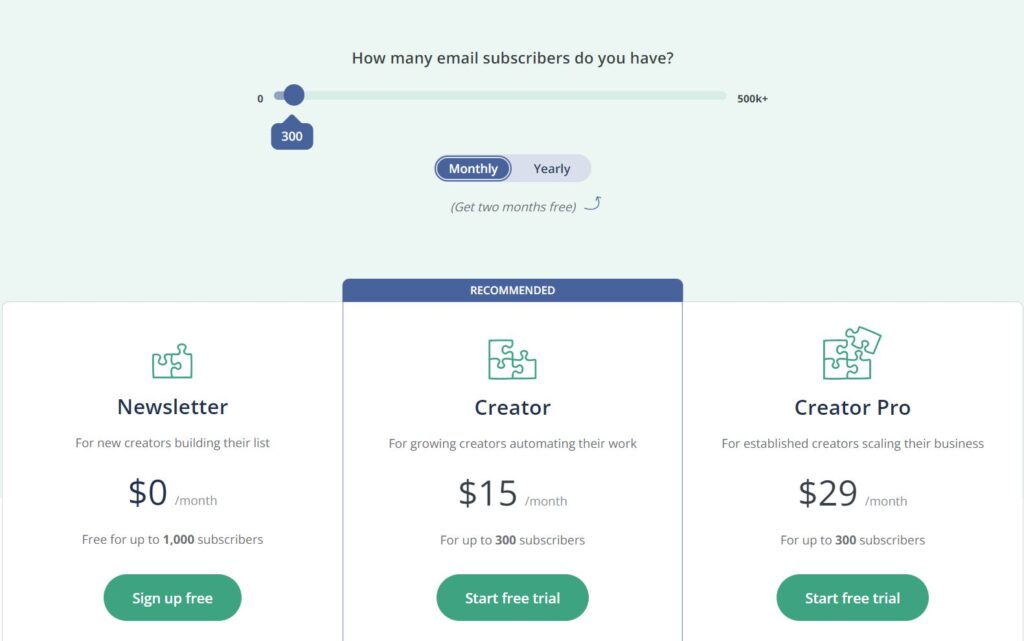
- Free Plan: This plan caters to beginners and includes basic features such as email broadcasts and subscriber management for up to 1,000 subscribers.
- Creator Plan: Starting at $29 per month for up to 1,000 subscribers, this plan includes automation features, integrations, and additional support.
- Creator Pro Plan: Starting at $59 per month for up to 1,000 subscribers, this plan offers advanced features like subscriber scoring and advanced reporting.
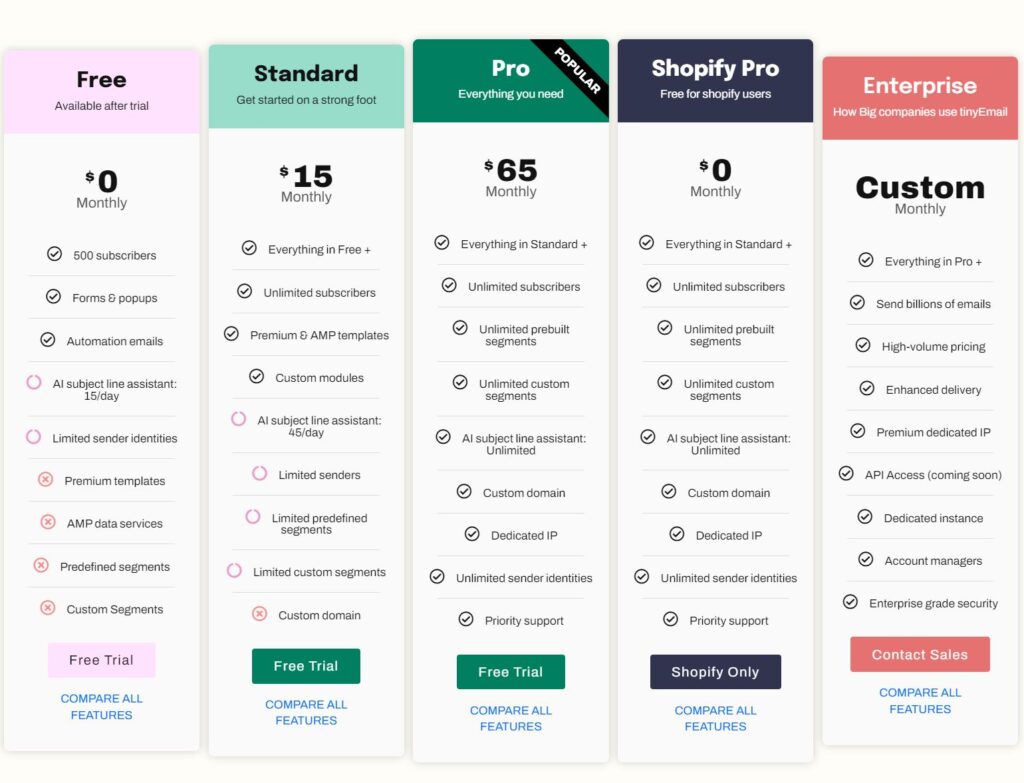
Tinyemail’s pricing is straightforward, making it an attractive option for small businesses and startups.
Tinyemail also has a ‘Free Plan‘ a great starting point for new marketers, offering essential email marketing tools for up to 500 subscribers. It’s perfect for small businesses and individuals seeking a cost-effective way to engage with their audience without any financial commitment.
- Standard Plan: At $15 per month, this plan includes all essential features with a limit of up to 2,500 subscribers.
- Pro Plan: Priced at $65 per month, this includes advanced features and supports up to 10,000 subscribers.
- Enterprise Plan: Custom pricing based on the specific needs and subscriber count of larger businesses.
Convertkit tends to be more suitable for users who need advanced features and have a larger subscriber base, albeit at a higher cost. Tinyemail, on the other hand, offers an affordable solution for those with smaller lists or who are just starting.
Comparing Features: “What Features Can You Expect?’
Convertkit is packed with easy-to-use features perfect for email marketing. You can automate emails to fit your audience’s preferences, create forms and landing pages that represent your brand, and send emails to specific groups of subscribers. Plus, it works well with other apps, adding more flexibility to your marketing efforts.
Here are some Key Features:
- [Email Automation: Offers advanced automation workflows, allowing for personalized customer journeys based on subscriber actions.
- Customizable Forms and Landing Pages: Provides a variety of templates for forms and landing pages, all customizable to match your brand.
- Segmentation and Tagging: Advanced segmentation options to target emails based on subscriber behavior and preferences.
- Third-party Integrations: Extensive integration capabilities with various apps and platforms for enhanced functionality.
Tinyemail keeps email marketing simple and easy. It’s great for beginners, with tools that help you quickly set up and send emails. You get basic automation for scheduling, easy ways to organize your subscribers, and simple analytics to see how your emails are doing. It’s a straightforward, hassle-free choice, especially for small businesses and startups.
Tinyemail Key Features:
- Simplified Email Campaigns: Intuitive tools for creating and managing email campaigns, suitable for beginners.
- Basic Automation: Offers basic automation for sending timely emails to subscribers.
- Subscriber Management: Easy-to-use tools for managing and organizing your subscriber list.
- Performance Tracking: Basic analytics to track the performance of your email campaigns.
Both Convertkit and Tinyemail have great features, but Convertkit offers a broader range of advanced features, ideal for users requiring more comprehensive email marketing tools. Tinyemail, on the other hand, provides a more straightforward approach, focusing on the essentials of email marketing.
Email Design and Customization: “How Creative Can You Get?’
When it comes to Email Design and Customization, Convertkit and Tinyemail offer distinct experiences. Convertkit stands out with its wide range of customizable templates and a user-friendly drag-and-drop editor, making it easy to tailor your emails to your brand’s style. It’s ideal for those who value creative freedom and visual impact in their email campaigns.
On the other hand, Tinyemail opts for simplicity and efficiency, offering a more limited but streamlined selection of sleek, minimalist templates. This approach is perfect for users who prefer a no-fuss, content-focused email design, ensuring a straightforward and quick setup process.

Convertkit: Convertkit provides a robust set of tools for email design, catering to both novices and experienced users.
- Templates: There’s a diverse range of pre-designed templates, each customizable to fit your brand’s look and feel.
- Customization: The drag-and-drop editor makes it simple to tailor your emails, whether it’s adjusting layouts, fonts, or colors.
- Visual Editor: It offers a visual editing experience, allowing you to see changes in real time, which is great for those who aren’t code-savvy.

Tinyemail: Tinyemail, keeping with its ethos of simplicity, offers a more streamlined approach.
- Simplified Design Options: While the choices are more limited compared to Convertkit, Tinyemail’s templates are sleek and straightforward, focusing on content rather than complex design elements.
- Ease of Use: The platform is very user-friendly, especially for those who prefer a minimalistic design approach without the need for extensive customization.
Convertkit stands out for users seeking extensive design customization and a variety of templates. Tinyemail, however, is ideal for those who favor simplicity and ease of use in their email designs.
Feedback and Reviews: ‘What Are Users Saying?’
When selecting an email marketing tool, it’s invaluable to consider community feedback and reviews. This real-world input can provide insights beyond feature lists and pricing tables. In our exploration of Convertkit vs Tinyemail, we gathered insights from various user reviews and community feedback.
Convertkit: Convertkit generally receives positive reviews, especially from bloggers and content creators. Users praise its user-friendly interface and robust automation features. They appreciate the ability to create complex email sequences and the effectiveness of its segmentation and tagging capabilities. However, some users have expressed dissatisfaction, particularly with its user experience and customer service. A segment of users finds the interface not as intuitive as expected, leading to a steep learning curve for beginners. Additionally, there have been instances where customer support was perceived as less responsive or not as helpful as desired, causing frustration among users who needed timely assistance or in-depth guidance.





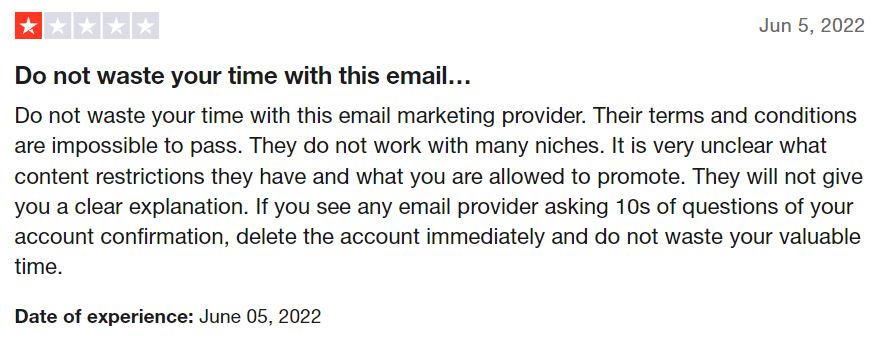
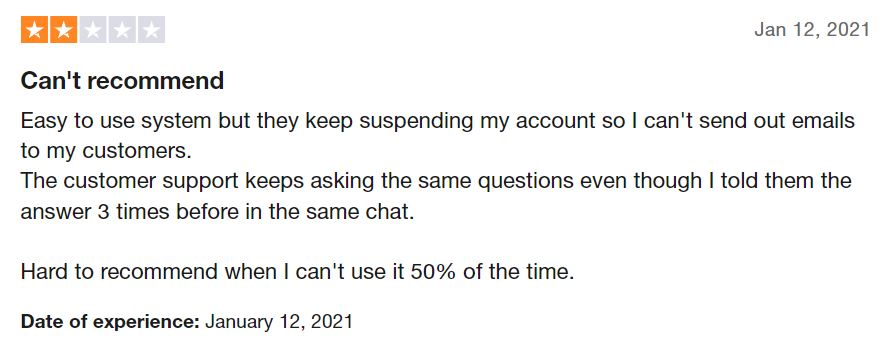


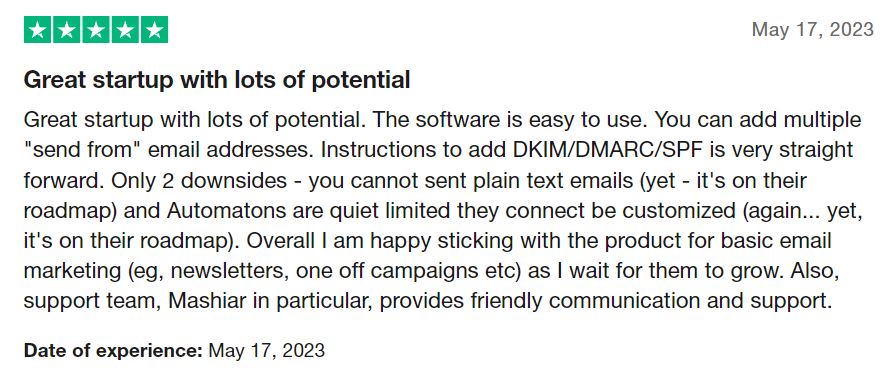
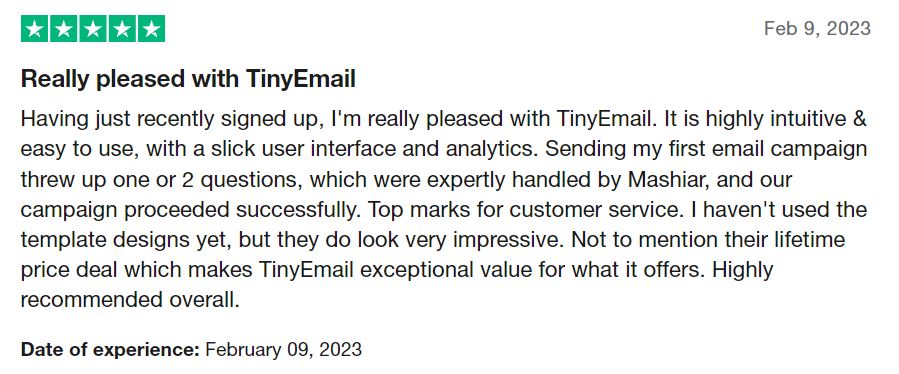
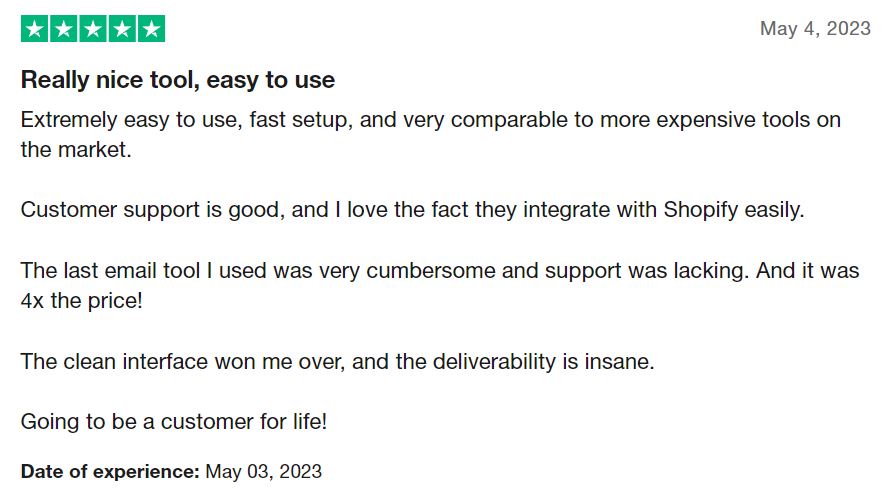
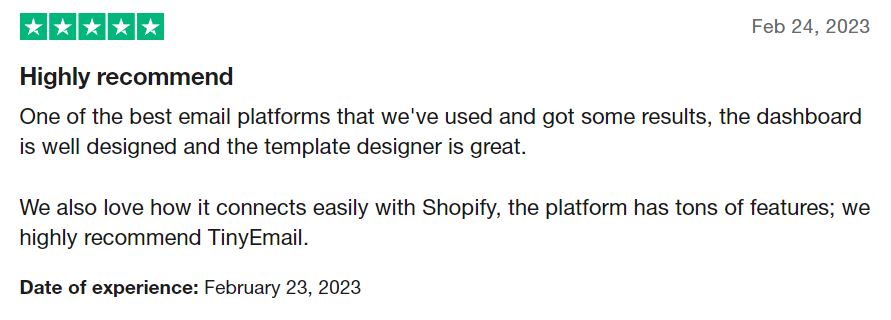
Tinyemail: Tinyemail, is relatively newer in the market, but the feedback is predominantly positive. Users love its simplicity and straightforward approach to email marketing. It’s often highlighted as an excellent option for small businesses and startups due to its affordability and ease of use. A common note, though, is its limited features compared to more established tools like Convertkit.
Both Convertkit and Tinyemail have their strengths as reflected in community feedback and reviews. Convertkit is often recommended for those who need a comprehensive set of features and have some experience in email marketing, while Tinyemail is favored by those who are just starting or prefer a more streamlined, cost-effective tool.
Pros and Cons
When evaluating email marketing tools, understanding their strengths and weaknesses is key. In this section, we’ll dissect the pros and cons of Convertkit and Tinyemail, guiding you through our Convertkit vs Tinyemail comparison.

Convertkit Pros:
- Advanced Automation: Offers complex automation capabilities ideal for personalized marketing strategies.
- Rich Customization Options: A wide range of templates and a user-friendly editor for customized email designs.
- Segmentation and Tagging: Sophisticated tools for targeted email campaigns.
- Strong Integration Capabilities: Extensive compatibility with various third-party applications.
Convertkit offers advanced automation and rich customization for email campaigns, appealing to experienced marketers, but its higher cost and potentially steep learning curve may pose challenges for beginners and those with budget constraints.
Convertkit Cons:
- Cost: Generally more expensive, especially for larger subscriber lists.
- User Experience: Some users report a steeper learning curve.
- Customer Service: Occasional feedback about less responsive support.

Tinyemail Pros:
- Simplicity and Ease of Use: Straightforward and user-friendly, great for beginners.
- Affordability: More cost-effective, particularly for small businesses and startups.
- Basic Functionality: Covers all essential email marketing features without complexity.
- Efficient Design: Minimalistic templates for quick email creation.
Tinyemail stands out for its simplicity and affordability, making it ideal for beginners and small businesses, but it’s limited features and basic design options may not satisfy those seeking advanced automation and in-depth customization.
Tinyemail Cons:
- Limited Features: Lacks advanced automation and customization options.
- Fewer Templates: Not as many design choices compared to Convertkit.
- Basic Analytics: The analytics offered are fundamental and might not suffice for in-depth analysis.
both platforms have their unique advantages and limitations. Convertkit excels in feature-rich email marketing solutions but at a higher cost, while Tinyemail is more about simplicity and cost-efficiency, albeit with fewer features.
Conclusion and Recommendations
In our comprehensive Convertkit vs Tinyemail comparison, we’ve seen that both platforms have distinct strengths and cater to different user needs in the email marketing landscape.
Convertkit is a robust solution, ideal for users who require advanced features like detailed automation, extensive segmentation, and a wide array of customization options. It’s particularly well-suited for experienced marketers, content creators, and businesses that are looking to scale up their email marketing efforts and don’t mind investing a bit more for enhanced capabilities.
On the other hand, Tinyemail is an excellent choice for those just starting out or for businesses that need a straightforward, no-frills email marketing tool. It’s user-friendly, budget-friendly, and covers all the basic necessities of email marketing effectively. Tinyemail is perfect for small businesses, startups, or individuals who prioritize ease of use and affordability over advanced features.
- For Growing Businesses and Experienced Marketers: Convertkit is the recommended choice if you’re looking to develop sophisticated email marketing campaigns with a variety of integrations and customization options.
- For Startups, Small Businesses, and Beginners: Choose Tinyemail if you’re seeking an uncomplicated, cost-effective solution that covers basic email marketing needs without overwhelming features.
In conclusion, the choice between Convertkit and Tinyemail boils down to your specific email marketing requirements, budget, and level of expertise. Both offer valuable tools in their own right, and the best choice will align with your unique goals and resources in your email marketing journey.
Thanks for Reading our Blog about Convertkit vs Tinyemail, if you’re interested be sure to check out our other blogs!

